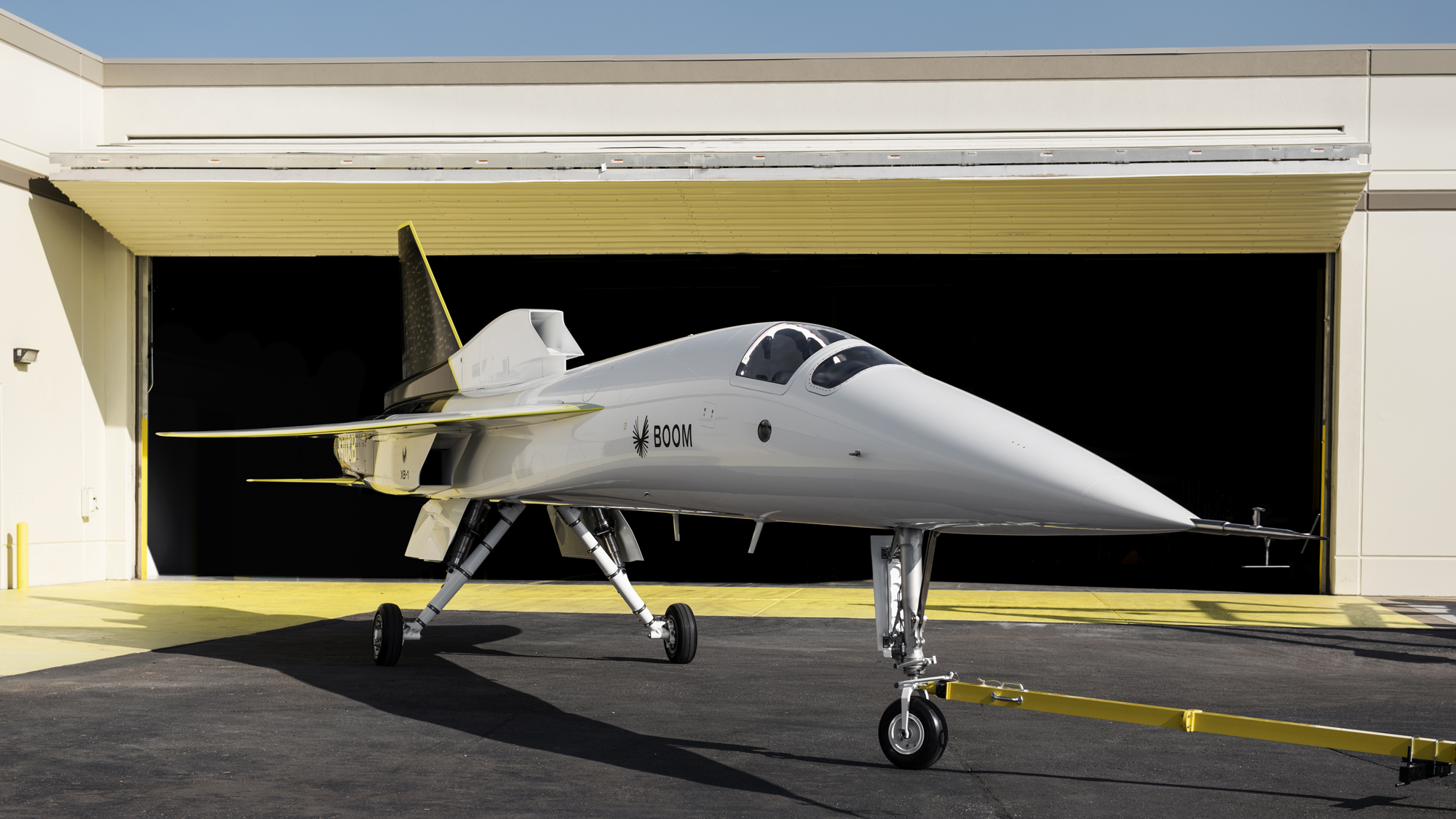Boom Supersonic will test fly its new faster-than-sound XB-1 jet in 2021
The Talon's first demonstration flight is months away.
Breaking space news, the latest updates on rocket launches, skywatching events and more!
You are now subscribed
Your newsletter sign-up was successful
Want to add more newsletters?
Aviation startup Boom Supersonic plans to fly a supersonic jet demonstrator in 2021, the company recently announced.
The XB-1 demonstrator will be 71 feet (22 meters) long and made of carbon composite, allowing it to remain resilient to flying faster than the speed of sound, the company said in an October statement. The ultimate goal is to create an airplane that will fly Mach 2.2, or 2.2 times the speed of sound.
"XB-1 is an important milestone towards the development of our commercial airliner, Overture, making sustainable supersonic flight mainstream and fostering human connection," Boom founder and CEO Blake Scholl said in a statement.
Video: Supersonic XB-1 aircraft revealed by Boom
Related: Stratolaunch building Talon hypersonic plane for Mach 6 flights
If the flight plans for XB-1 go as planned, and if Overture's development stays on schedule, the company says it hopes to do full-scale flight testing in 2025 for passenger flights later in the decade. The goal is to slice standard cross-ocean airplane travel times in half. For example, a trip from Paris to Montreal would take 3 hours and 45 minutes, half of the standard 7 hours and 15 minutes available today, Boom said on its website.
Other design features of the XB-1 include three General Electric J85-15 engines, an ergonomic cockpit optimized for high-speed flights and a delta wing for stability at takeoff and landing.
Boom is privately funded and has gone through several rounds of venture capital fundraising, including a $51 million round in 2017 and a $100 million round in 2019. Richard Branson's Virgin Group has pre-ordered aircraft from Boom to build a fleet of supersonic aircraft. Branson founded the airline Virgin Atlantic and the space tourism company Virgin Galactic, which hopes to run commercial suborbital flights later in the 2020s.
Breaking space news, the latest updates on rocket launches, skywatching events and more!
Related: Virgin Galactic unveils Mach 3 design for supersonic passenger flights
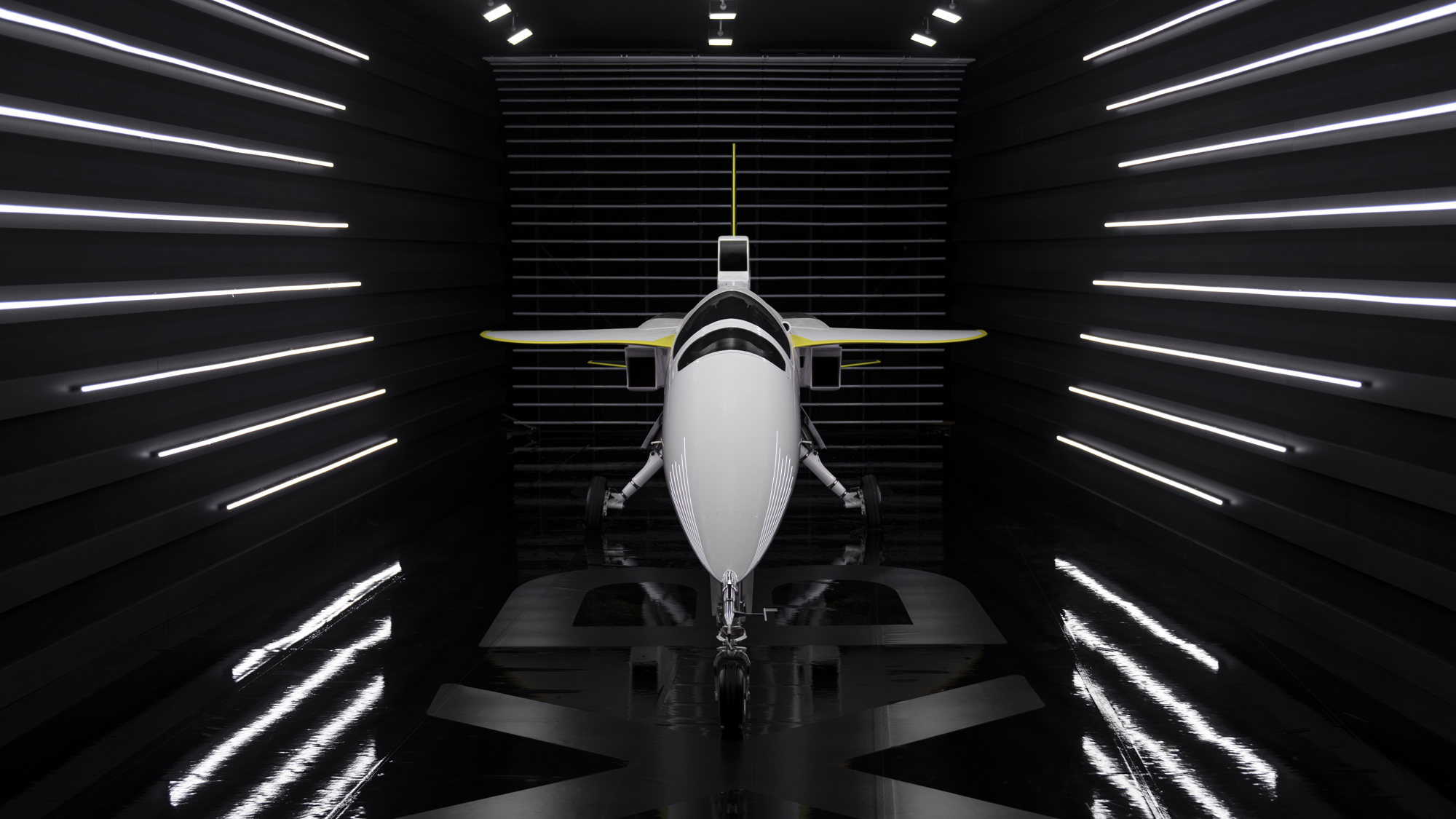
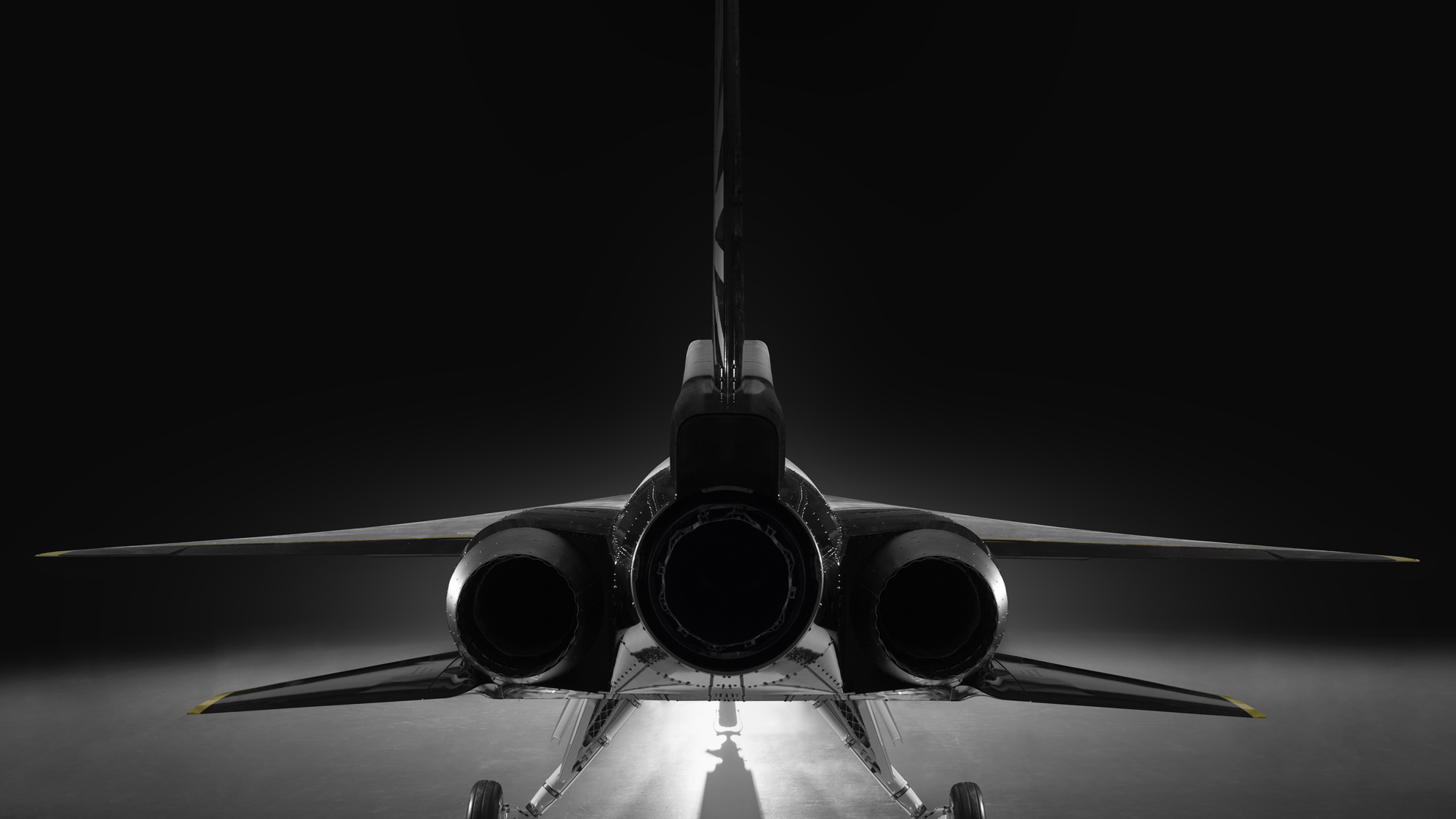
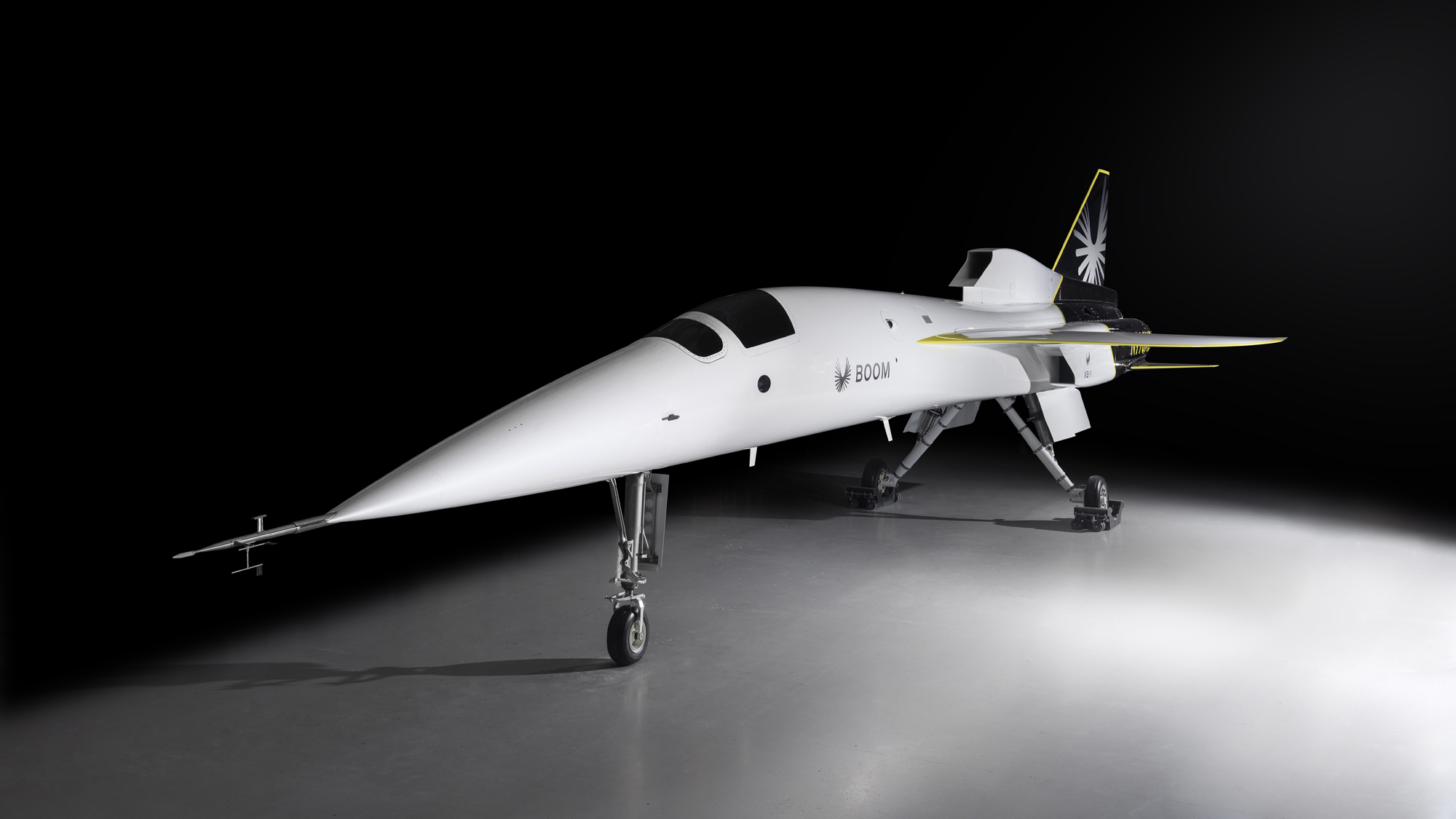
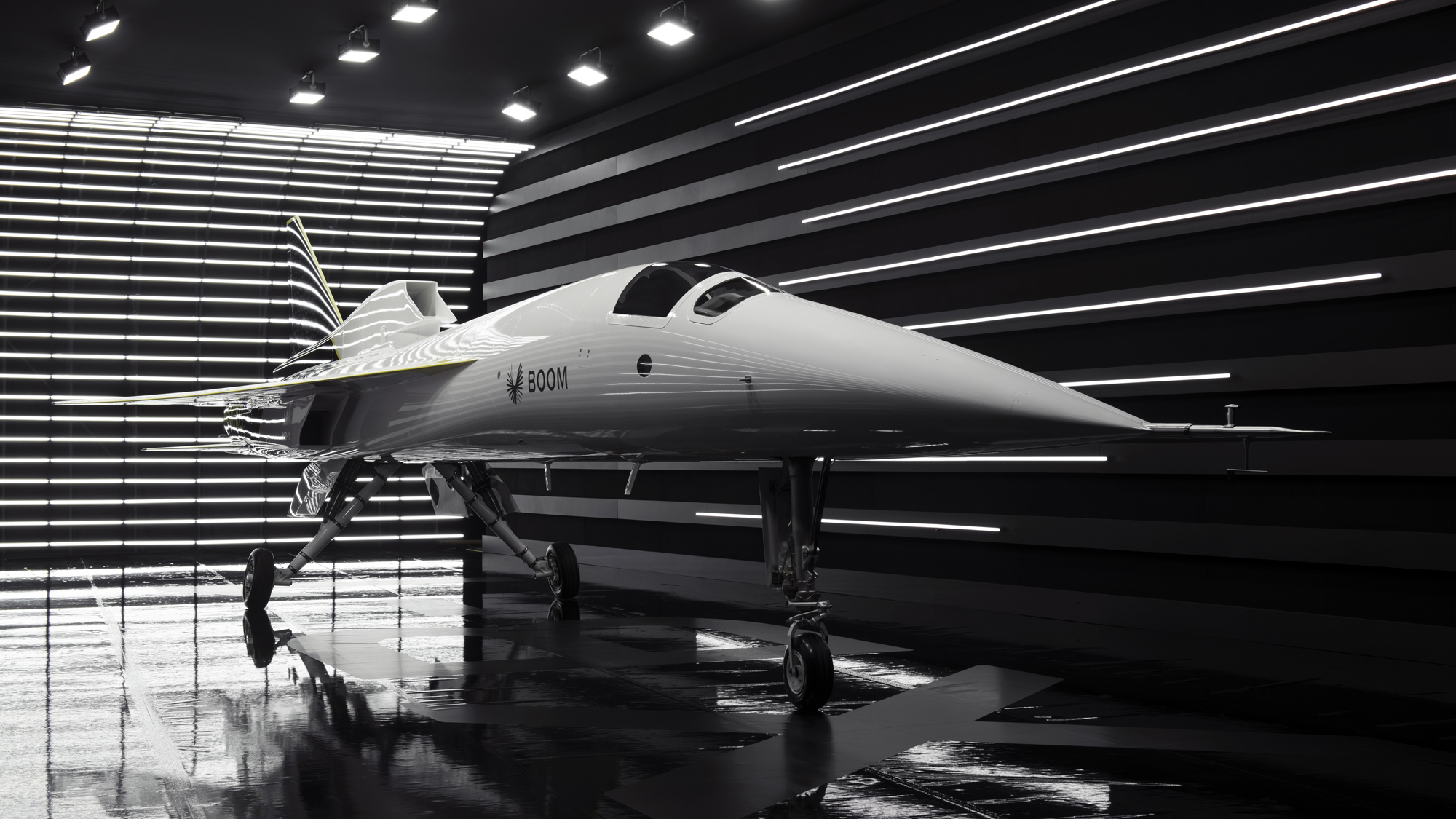
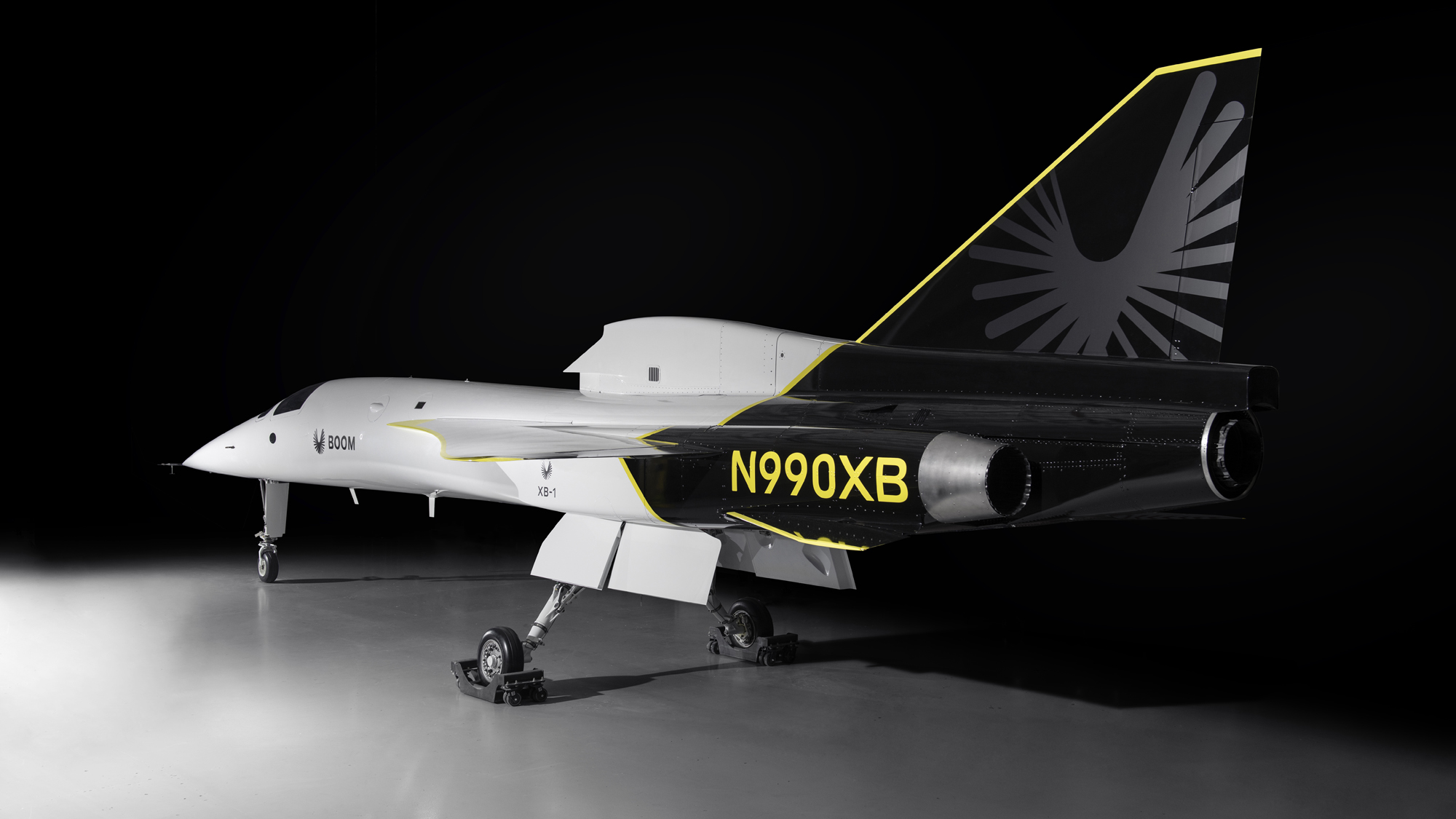
Boom was founded in 2014 and has more than 140 full-time employees who have contributed to more than 220 air and spacecraft programs, Boom said. The company's forthcoming flight demonstrations will come two decades after two supersonic airliners suspended operations due to the ongoing cost and complication of sustaining a high-speed airline business.
The British-French supersonic passenger airliner Concorde was in operation between 1969 and 2003. Concorde was permanently grounded three years after the 2000 crash of Air France Flight 4590 killed all passengers and crew, amid a greater downturn in the aviation industry following the Sept. 11, 2001 terrorist attacks in the United States.
The Soviet Union's rival to the Concorde, a supersonic passenger plane called Tupolev Tu-144, was in operation from 1968 to 1999, but only flew commercially for a few years in the 1970s. While the program was canceled in 1983, later in its career existing airplanes were used for research and to train pilots for the short-lived Soviet Buran space shuttle, which flew once in space autonomously.
Correction: This story has been updated to reflect that Branson's Virgin Group, not his Virgin Galactic, has pre-ordered vehicles with Boom.
Follow Elizabeth Howell on Twitter @howellspace. Follow us on Twitter @Spacedotcom and on Facebook.

Elizabeth Howell (she/her), Ph.D., was a staff writer in the spaceflight channel between 2022 and 2024 specializing in Canadian space news. She was contributing writer for Space.com for 10 years from 2012 to 2024. Elizabeth's reporting includes multiple exclusives with the White House, leading world coverage about a lost-and-found space tomato on the International Space Station, witnessing five human spaceflight launches on two continents, flying parabolic, working inside a spacesuit, and participating in a simulated Mars mission. Her latest book, "Why Am I Taller?" (ECW Press, 2022) is co-written with astronaut Dave Williams.
